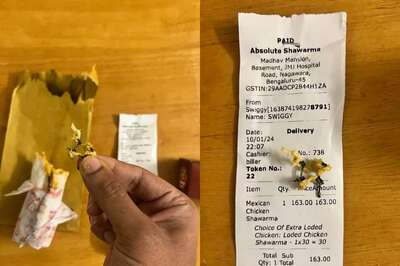
views
From fixing drug recalls to designing new work structures, eyeing the global market, and more — the Union government is teaching pharma companies in ongoing workshops the need to upgrade manufacturing practices.
Amid growing scrutiny by global regulators due to recurring compliance issues faced by small and medium-sized pharmaceutical companies, the government has planned a series of “capacity-building workshops” designed to aid drug manufacturers in effectively navigating regulatory requirements.
The Ministry of Commerce and Industry’s pharmaceutical export wing Pharmexcil had proposed these workshops which aim to enhance good manufacturing practices among MSME drugmakers. They are conducted in partnership with India’s drug quality regulator, CDSCO, under the Health Ministry.
According to the presentation shown during the workshops, the objective of this exercise is to provide insights to manufacturers about “good manufacturing practices”.
In August, the Centre decided to implement ‘Schedule M’ across all companies to tighten the manufacturing practices of pharmaceutical companies in India. Through these workshops, the government also aims to handhold manufacturers in adopting new rules.
Need for Good Manufacturing Practices
According to government data, there are around 10,500 manufacturing units in the country, of which at least 8,500 are in the category of micro, small and medium enterprises (MSME). Of these, only 2,000 are approved by the World Health Organization and certified as WHO-GMP (Good Manufacturing Practices). It means that the non-WHO-GMP compliant firms must comply with Schedule M.
The presentation, accessed by News18, starts with the basic concept of “Why Good Manufacturing Practices (GMP)?” It lists several reasons such as “to avoid mix-ups, to avoid contamination, to avoid cross-contamination, to produce consistent quality, to assure quality till the end of shelf life and to avoid any errors”.
It also explains to manufacturers “why we need a revision of Schedule M” — the law which makes the quality of Indian medicines equivalent to WHO-GMP certification standards.
The presentation says “GMP is dynamic”. It lists several points for upgrading due to “convergence with global standards”, “technological developments”, “quality awareness” and “opportunities in the global market”
How is the New Law Different?
The 43-slide-long presentation used in the workshops is focused on explaining the difference between the present set of regulations and the changing regulations after the implementation of Schedule M.
For instance: For product recall, presently, there is no provision to inform the licensing authority. Under new laws, the licensing authority will be informed and a “comprehensive system will be specified for prompt and effective recall”.
In sanitation practices in the pharma units, the present laws cover only workers and manufacturing premises. However, the new provision will cover personnel, premises, equipment, apparatus, production materials and containers.
Similarly, under compliance and adverse reactions, the existing laws cover only “serious adverse drug reactions” reported to the licensing authority. However, under new laws, “faulty manufacture, product deterioration, and serious quality problems will be reported to the licensing authority”.
The new law also wants a pharmacovigilance system to be in place which is a system of a set of activities and protocols for the detection, assessment, understanding and prevention of adverse effects of any medicine or vaccine-related problem.
Also, right now, for self-inspection, quality audits and supplier audits, the frequency is not regulated. However, as per new rules, it should happen “at least once a year”.
The new law also adds an “organisation chart” which aims to encourage staffers to remain “motivated to support the maintenance of high-quality standards”. This chart talks about the roles and responsibilities of key personnel such as heads of production and quality control. It also talks about the qualifications of key personnel.
There are several other requirements that pharmaceutical companies need to comply with post upgradation of Schedule M. Previously, the government had declared that drug manufacturers with an annual turnover exceeding Rs 250 crore must implement GMP within a six-month period beginning on August 1 of this year. Meanwhile, companies with a turnover of less than Rs 250 crore were granted a one-year timeline to accomplish this requirement.




















Comments
0 comment